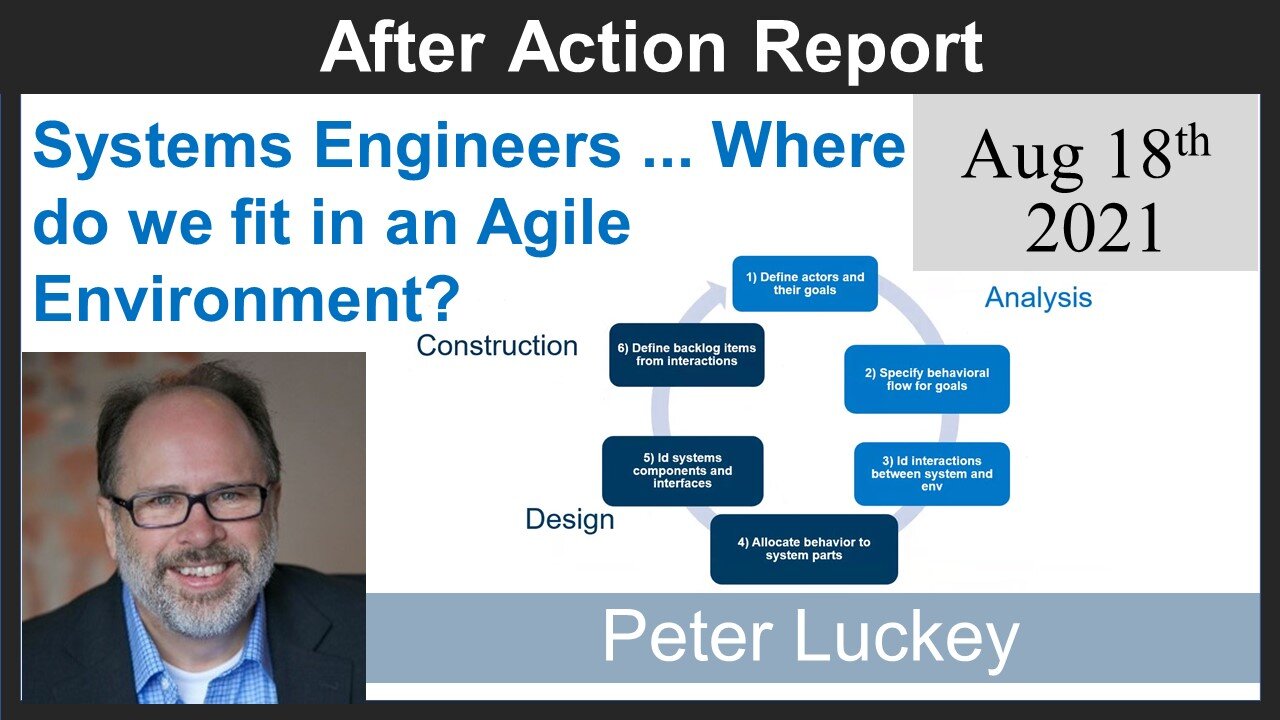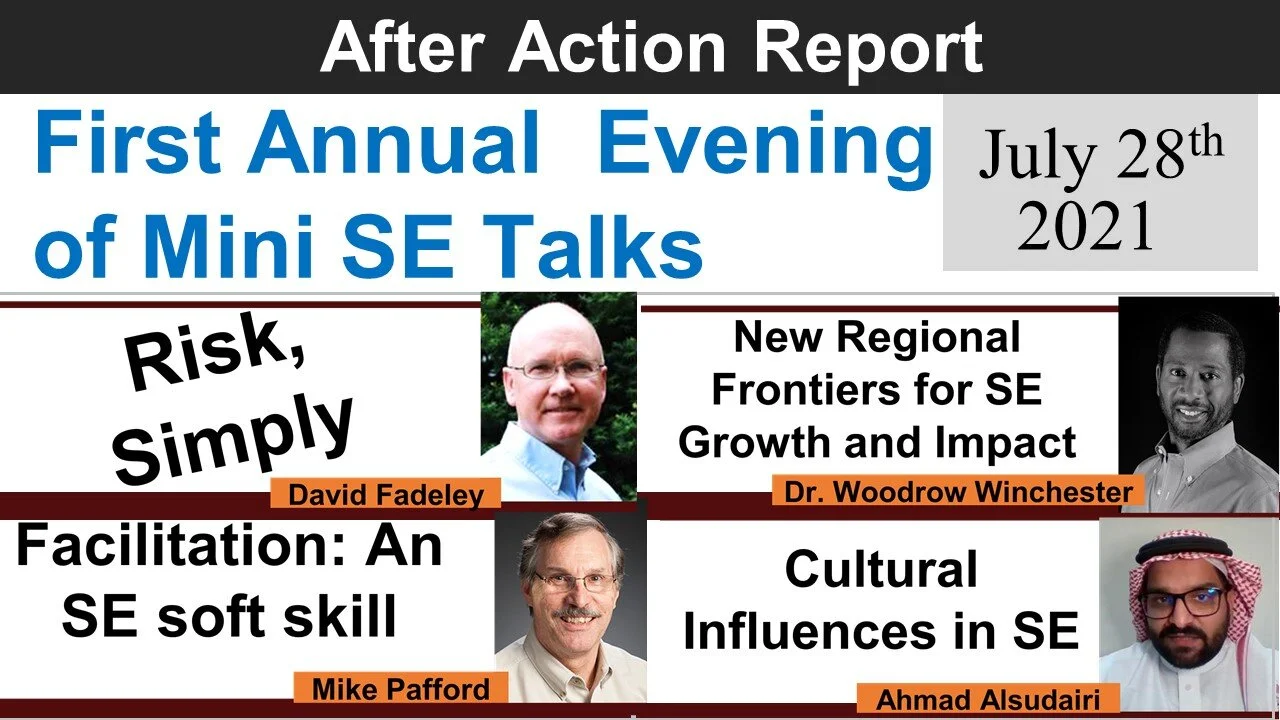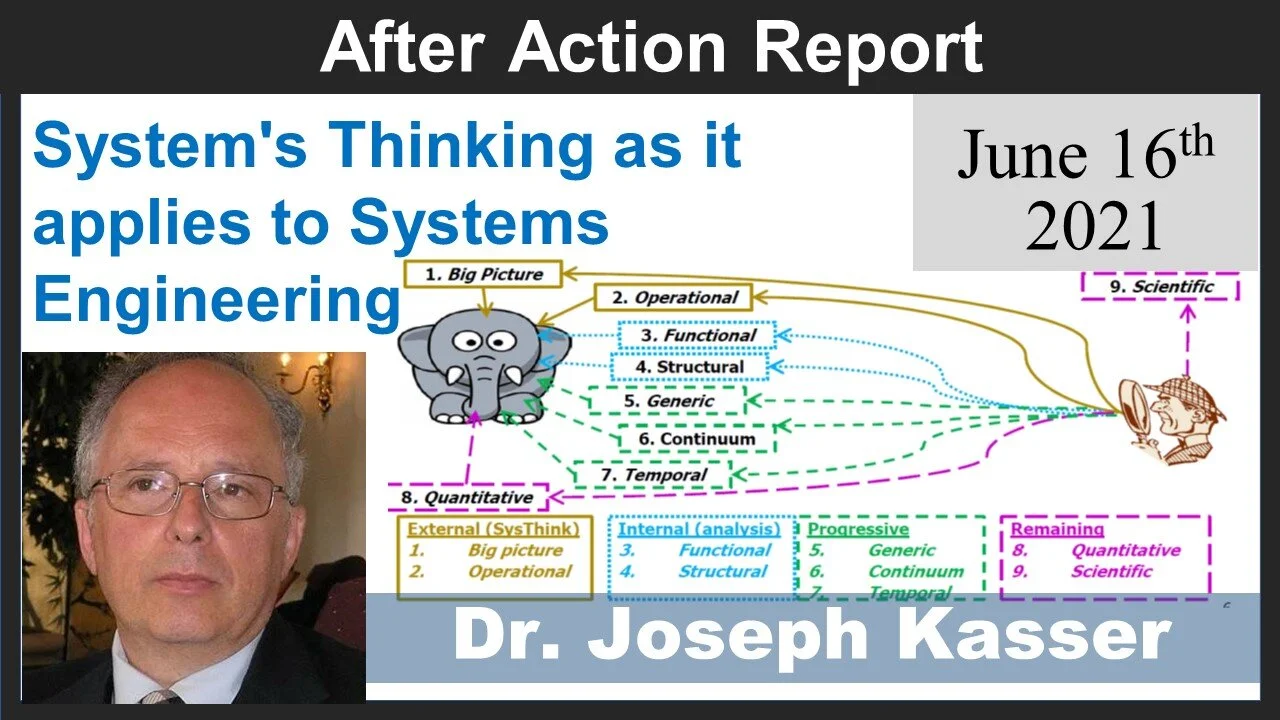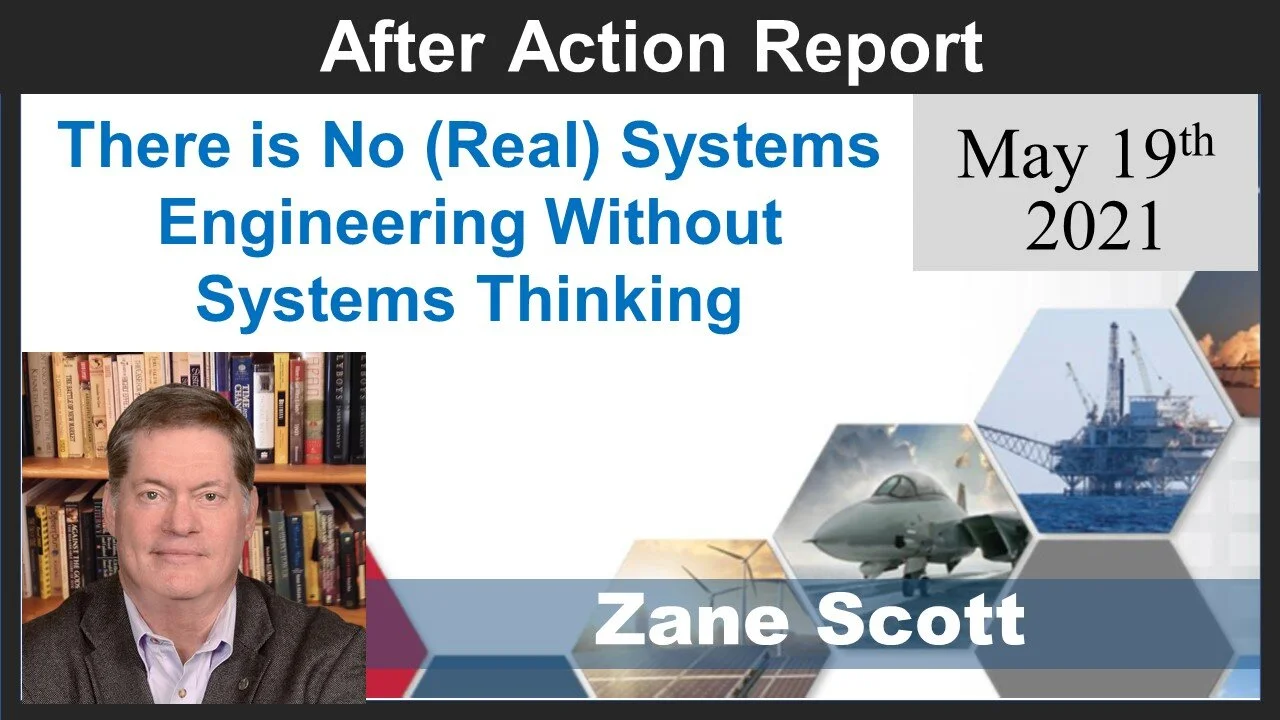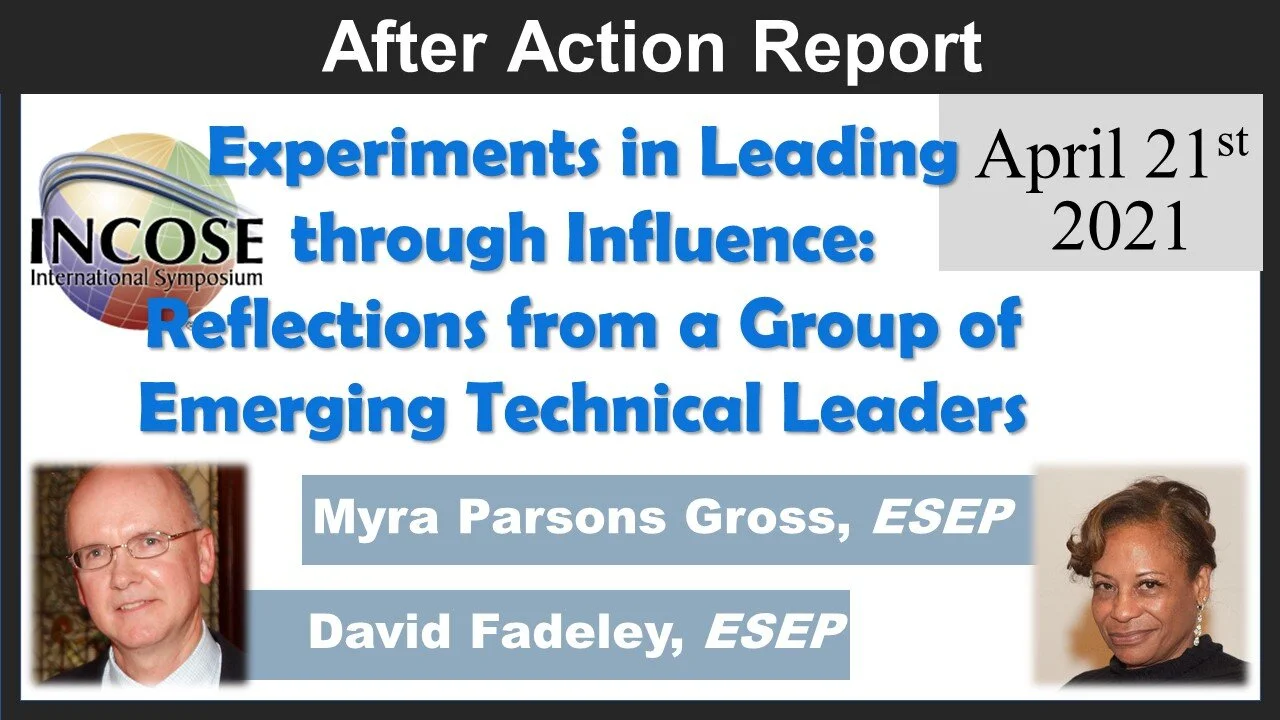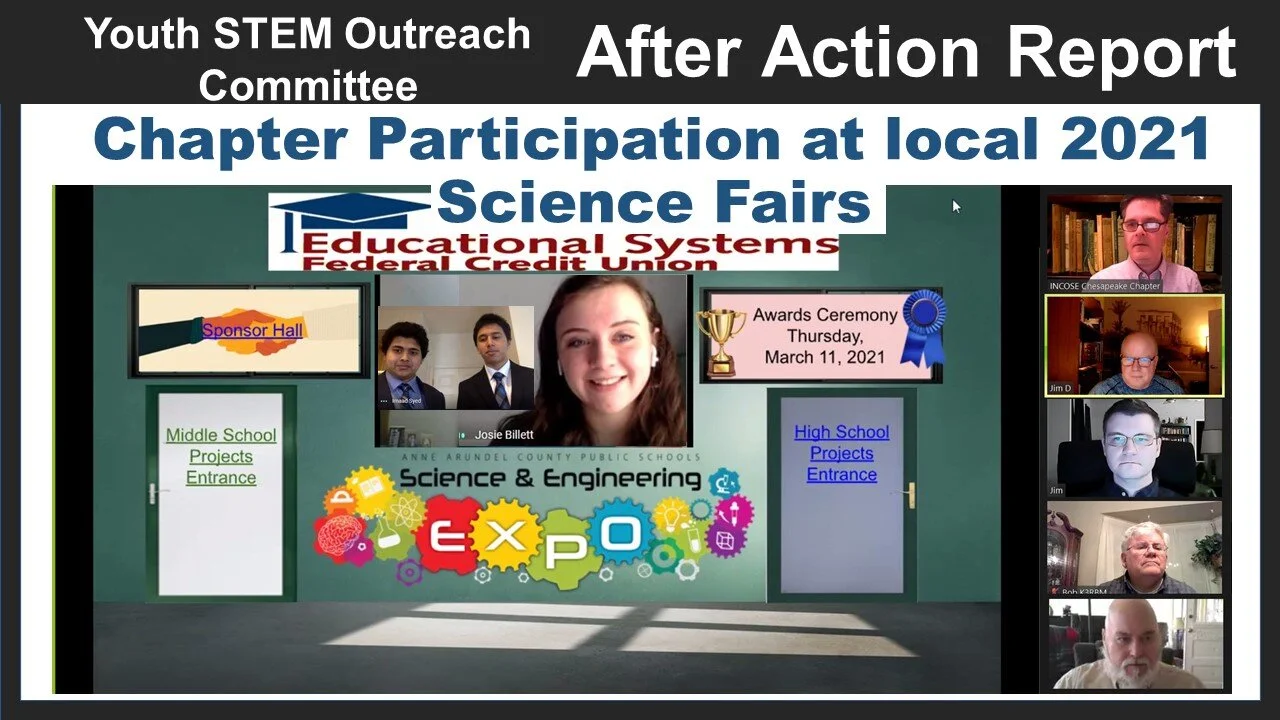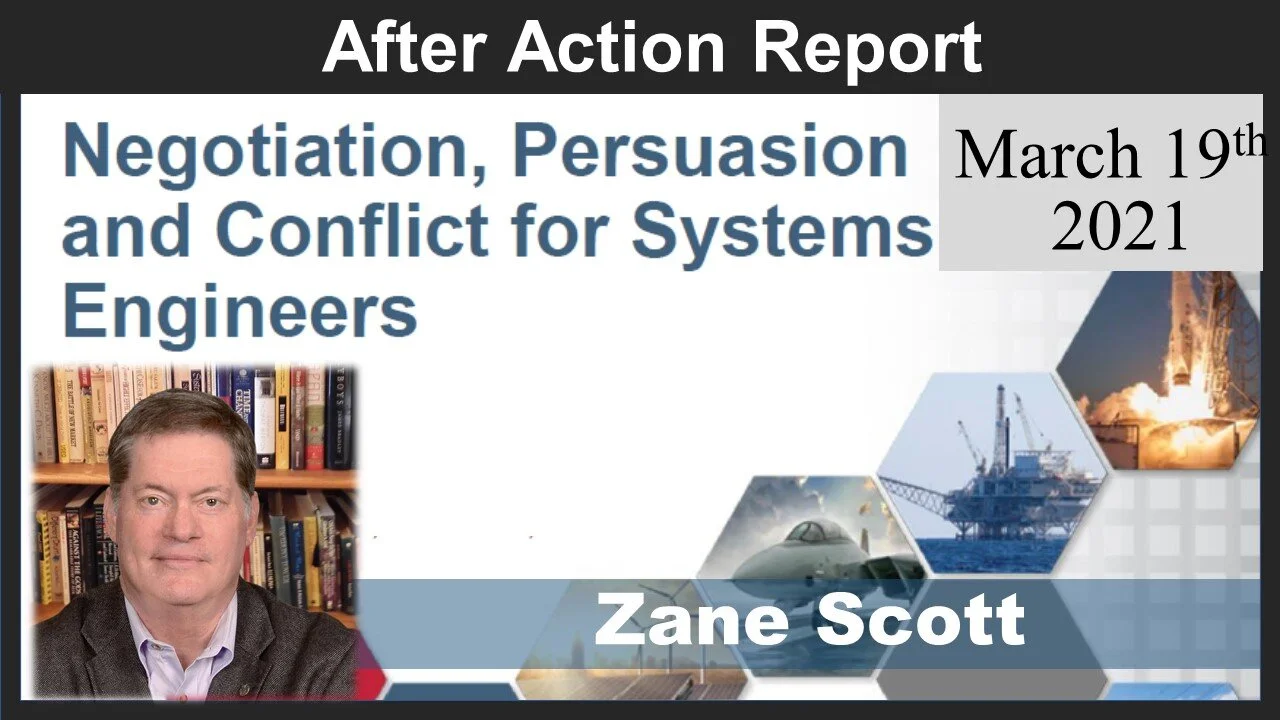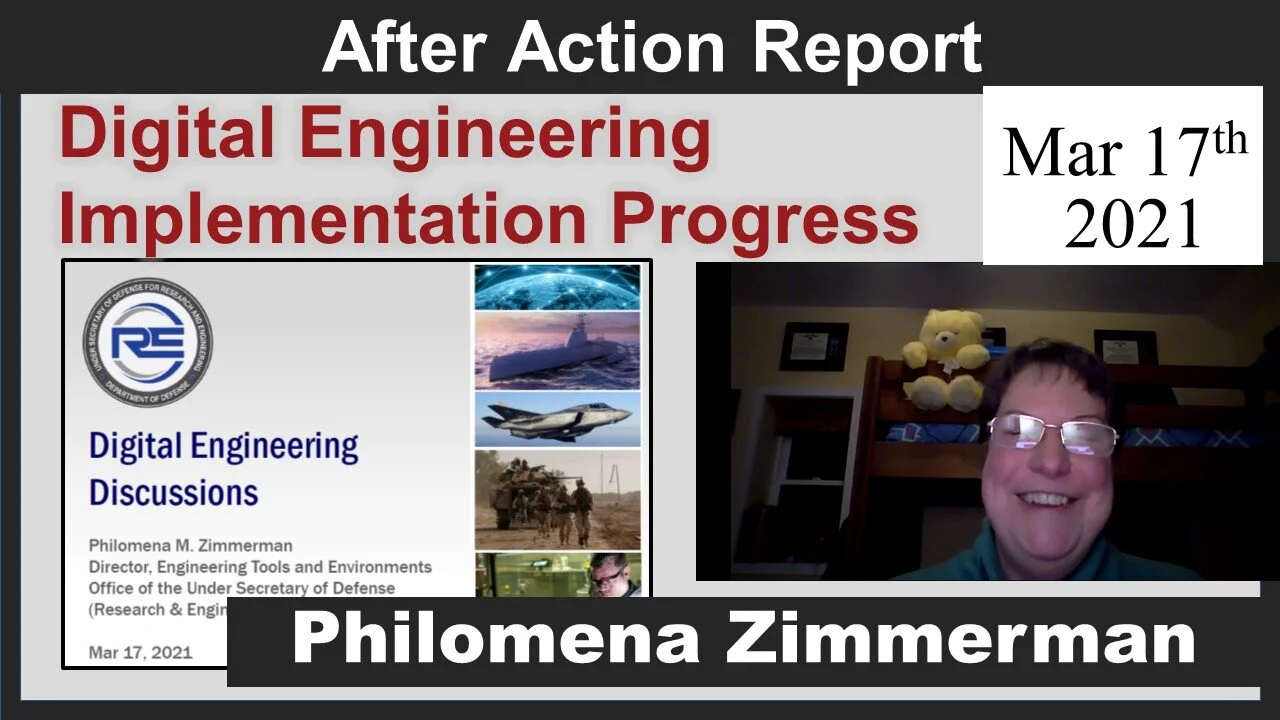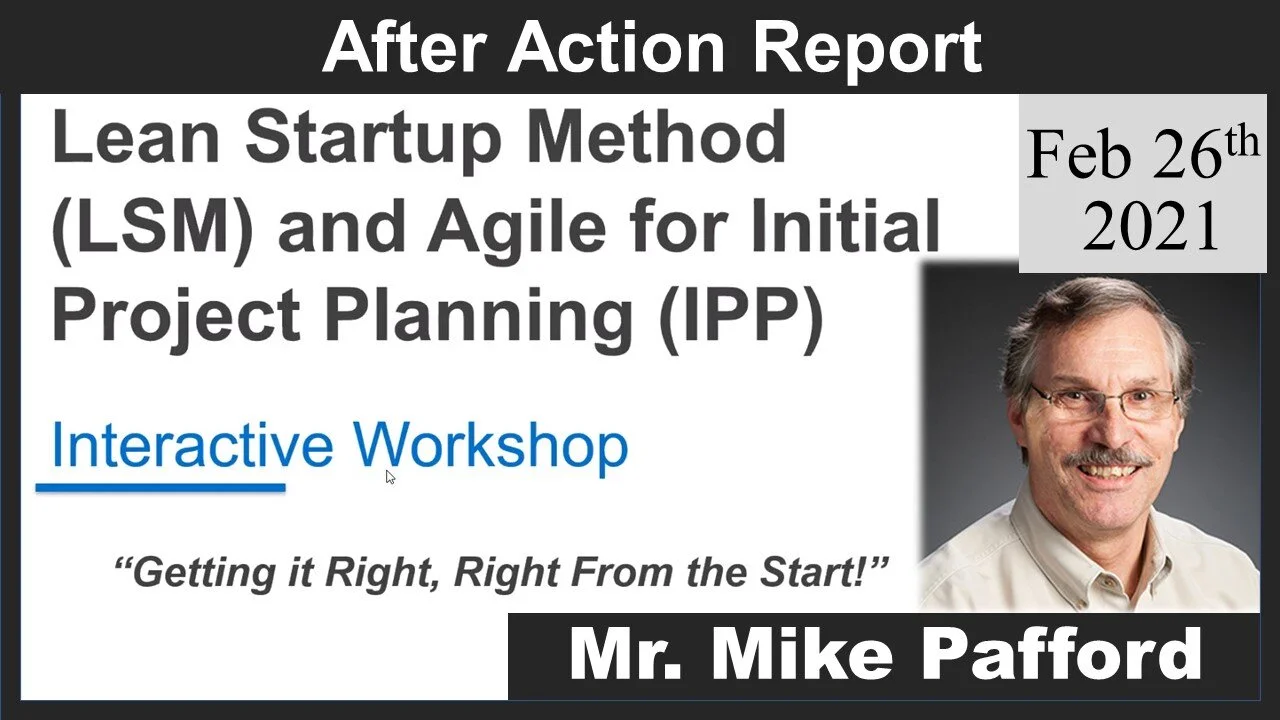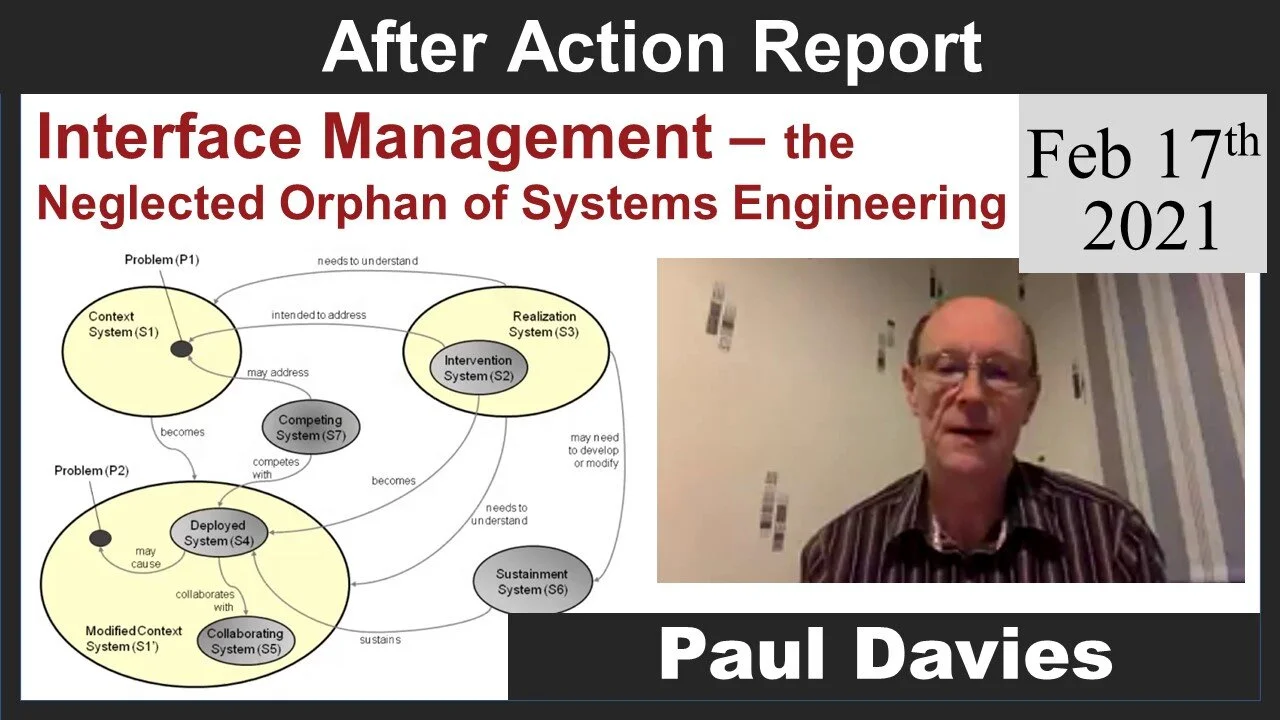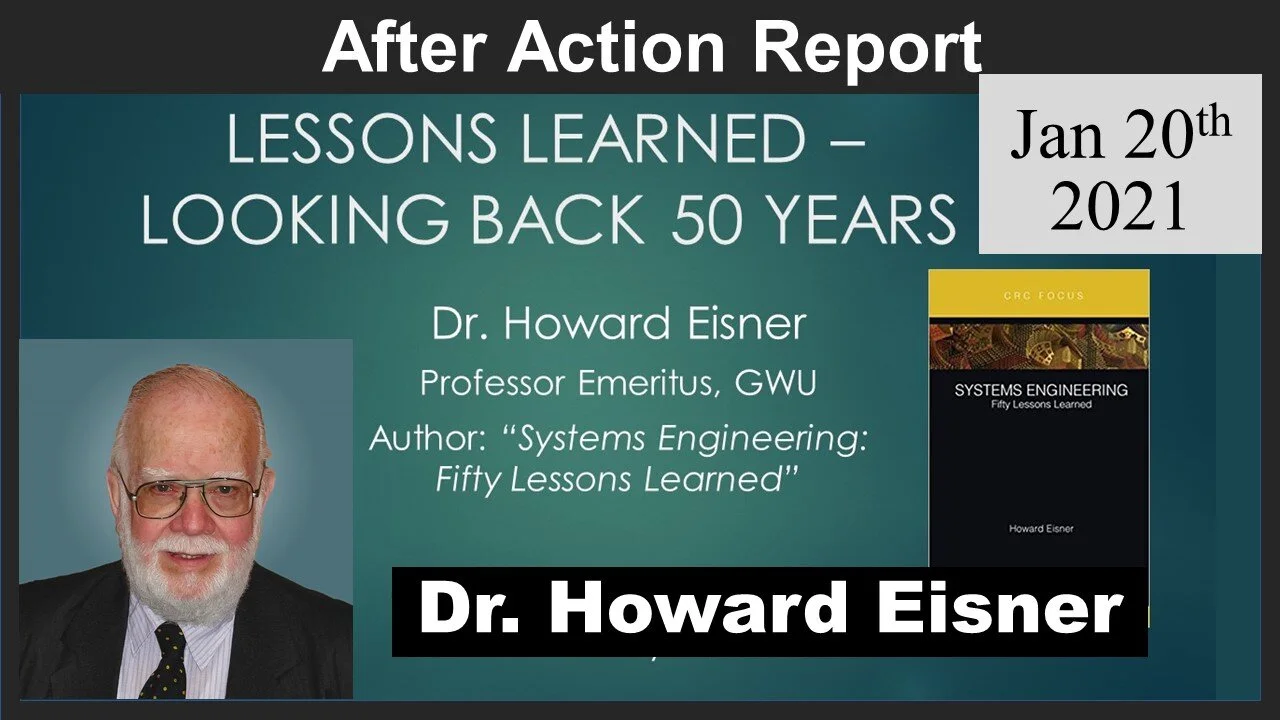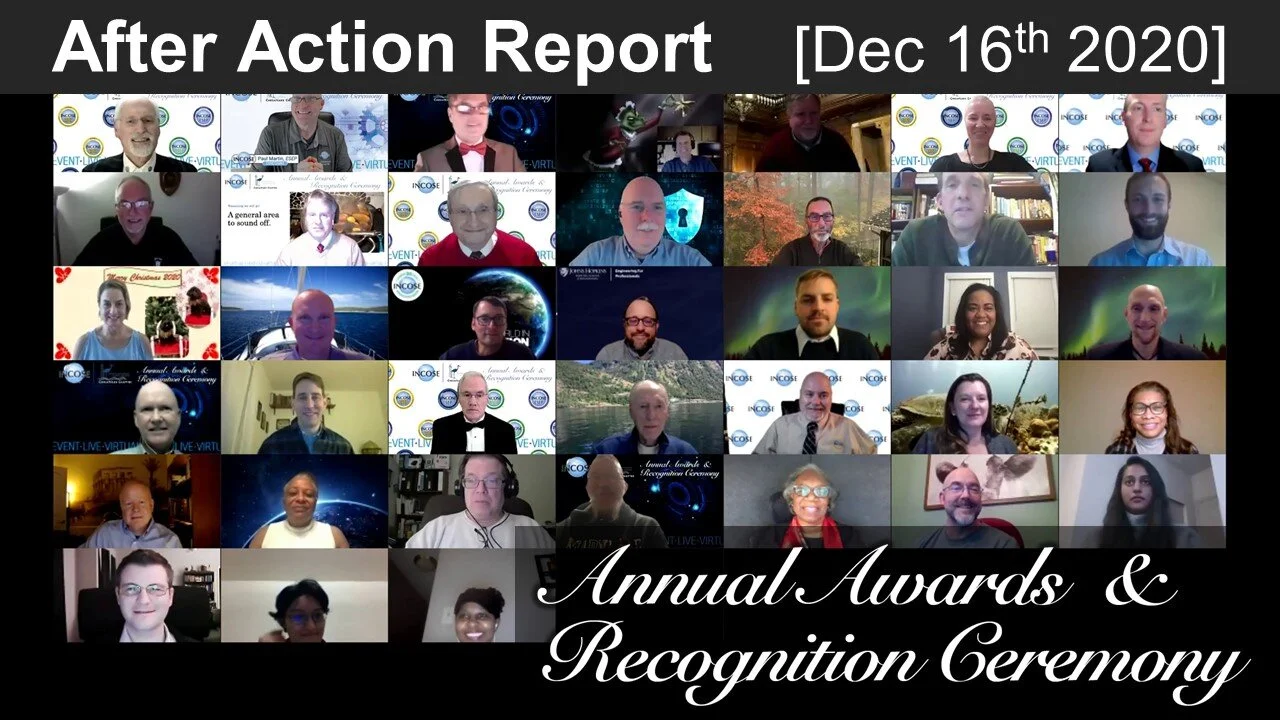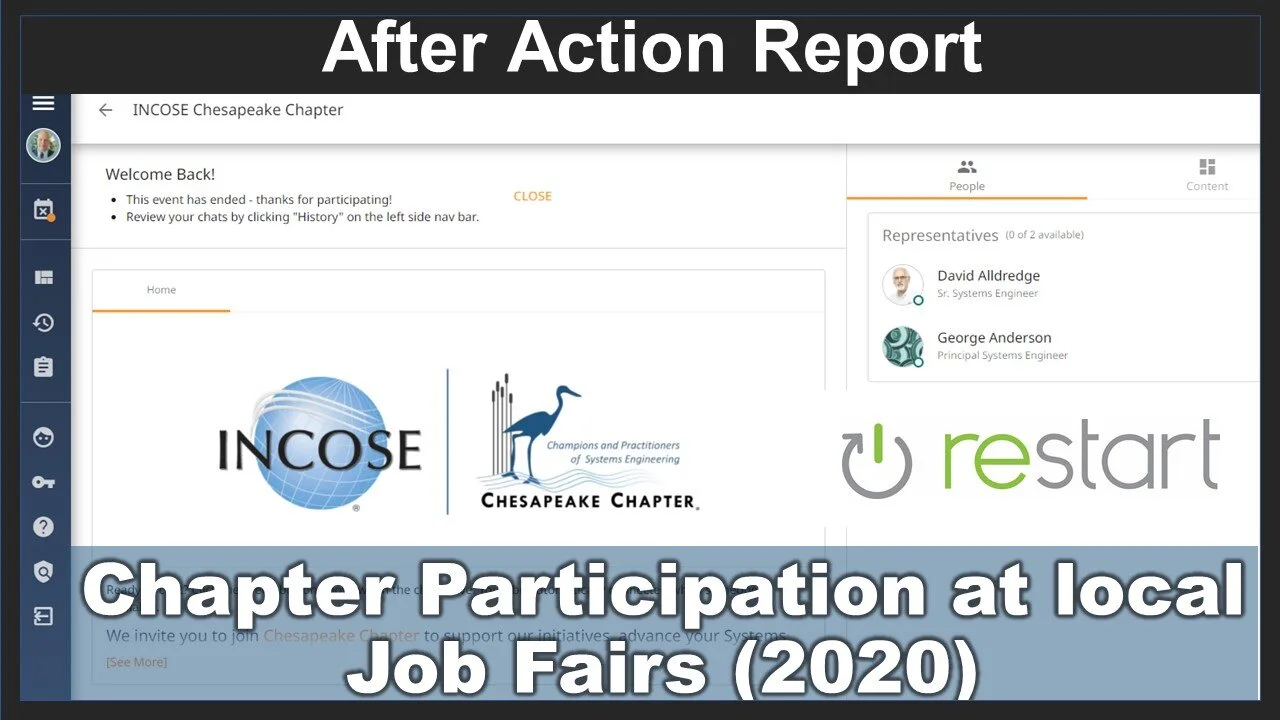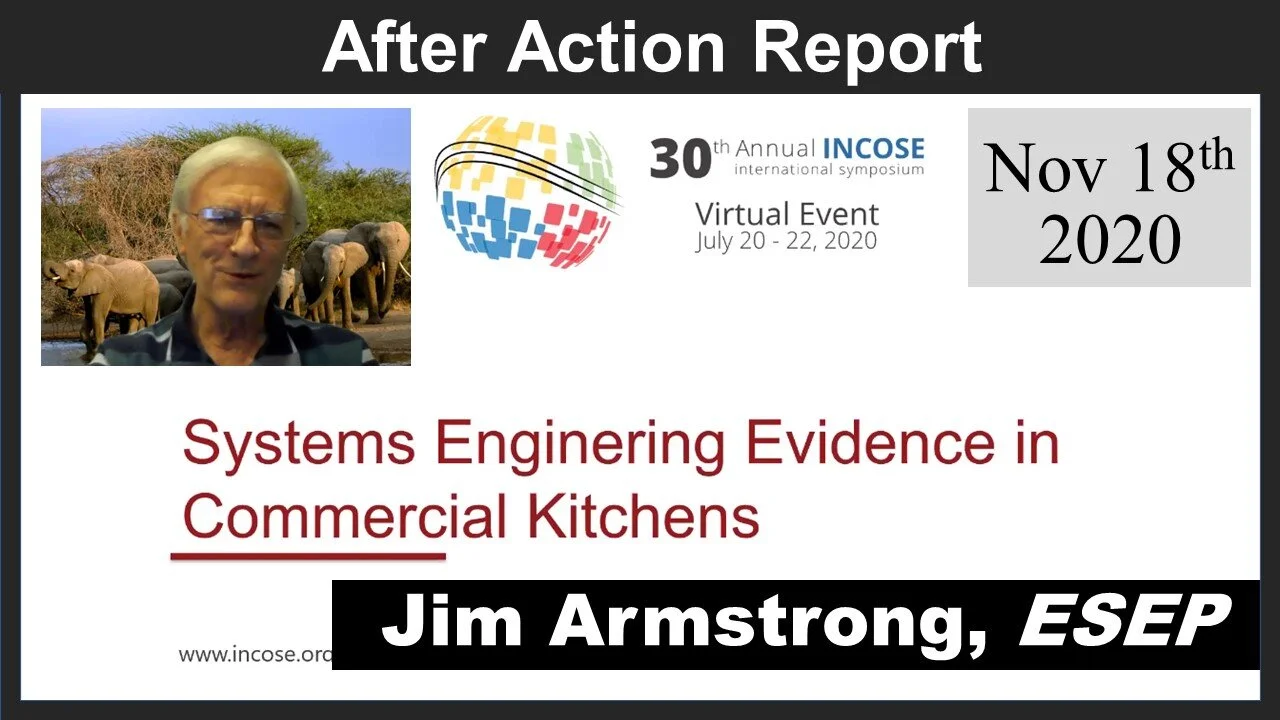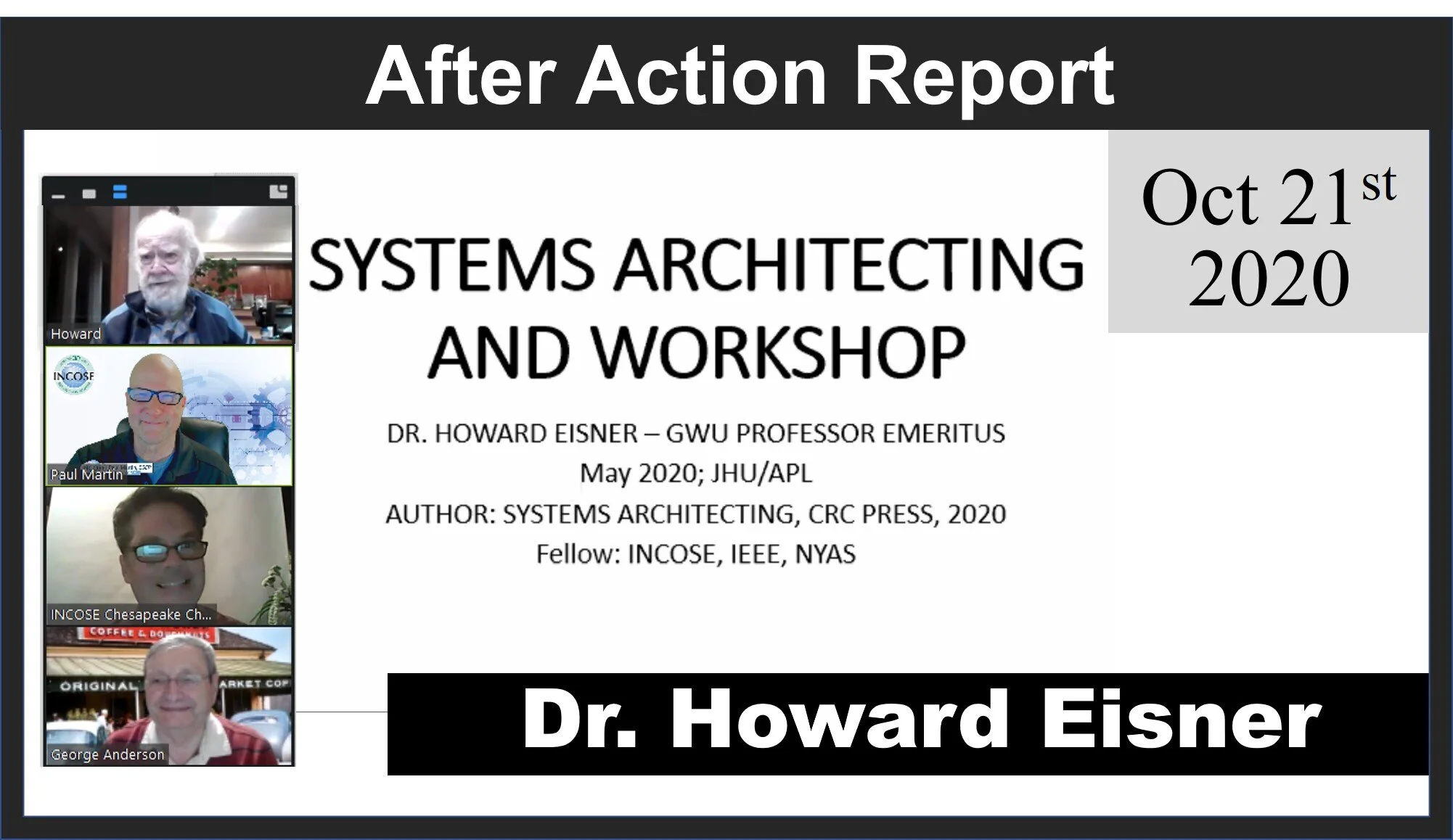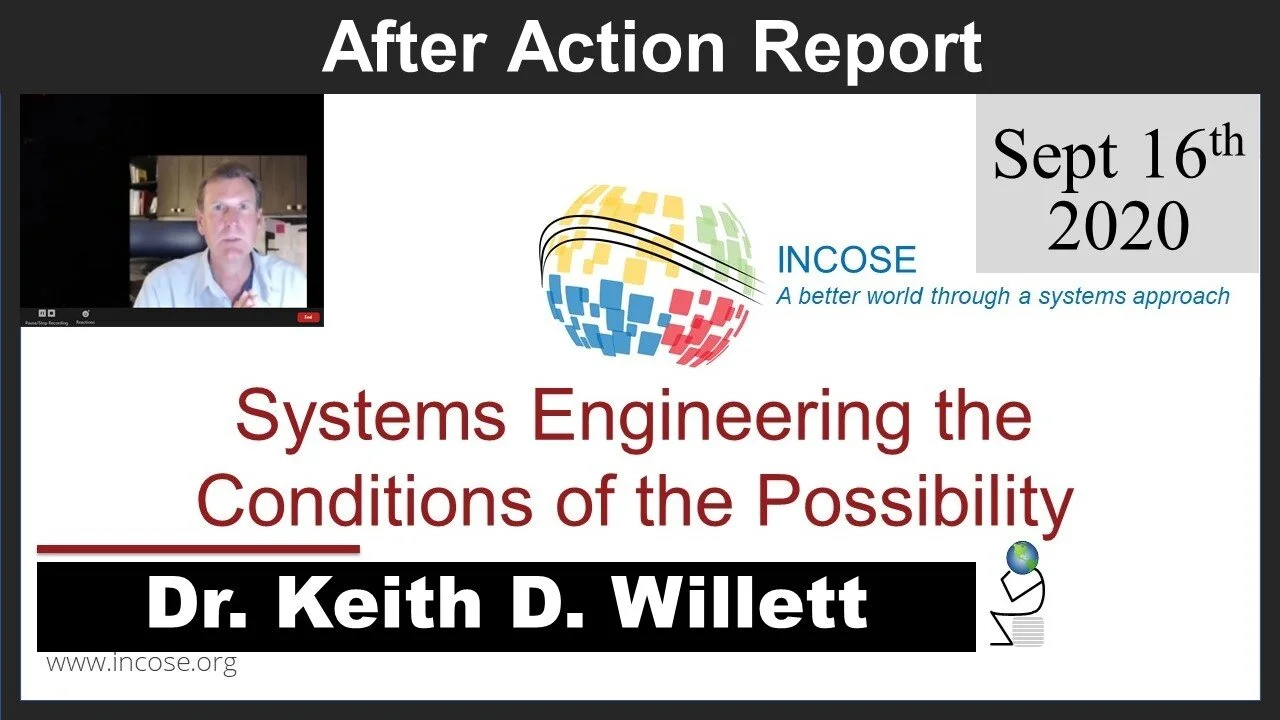Peter Luckey, a Senior Solutions Consultant at 321 Gang,explains how Systems Engineers play an important role in the execution of Agile development and even more so with the application of SAFe processes. Peter provided how the application of various SE workshops within the SAFe framework accomplish the Systems Engineering that needs to be done in large scale agile development efforts.
Read MoreWe held an evening of "Mini-Talk" sessions - a series of 10 minute brief talks covering a variety of practical topics and ideas on Systems Engineering. Each presented topic was a pre-recorded session played at the event. It turned into a very thought-provoking evening.
Read MoreThe 2021 INCOSE Symposium was a complete success. Out of the 740 attendees -- 29 were from the Chesapeake Chapter. Five papers were presented by our members - which we include in this report. If you went and would like to provide us a report, we’ll add it to this post. Send your experience to communications@incose-cc.org.
Read MoreDr Joseph E. Kasser explains how when systems thinking is applied to systems engineering, the artificial complexity is stripped away, the myths are identified for what they are, and systems thinking is shown to be a powerful tool that is used by many outstanding systems engineers.
Read MoreMr. Zane Scott explains that there must be good, sound engineering paired with solid, intentional systems thinking for us to have a solid foundation for what we do as Systems Engineers. Too many times we take systems engineering to be a process - a checklist of activities we can do that will aggregate to “systems engineering.” Throw in “models” and we get “model-based systems engineering.” Without the understanding and application of fundamental first principles we can walk through the steps of the Systems Engineering processes and miss the real rewards. Mr. Scott explores the first principles of the systems thinking leg of systems engineering.
David Fadeley, ESEP, and Myra Parsons-Gross, ESEP, reflect on a shared learning journey about technical leadership from the perspective of a group of emerging technical leaders.
Read MoreThis February and March, Chesapeake Chapter volunteers again participated as independent sponsor judges at the Anne Arundel County Public Schools Science and Engineering Expo. Due to the Coronavirus, this year the entire event was conducted virtually. The judges reviewed projects from 6th through 12th grade.
Read MoreMr. Scott's tutorial covered an important soft skill set that many technical professionals often neglect, but its soft skills that often are the determinant between an undistinguished and a distinguished performing professional. The ability to not just communicate, but to do it well, is often a pivotal factor for career advancement.
Read MoreMs Zimmerman discusses the DoD's Digital Engineering Strategy and its implementation as seen by the OUSD(R&E) and explains its challenges and how this concept has added value. The DoD's Digital Engineering Strategy is to promote the use of digital representations of systems and components and the use of digital artifacts as a technical means of communication across a diverse set of stakeholders. The strategy addresses a range of disciplines involved in the acquisition and procurement of national defense systems, and it encourages innovation in the way we build, test, field, and sustain our national defense systems and how we train and shape the workforce to use these practices.
Read MoreThe INCOSE Chesapeake Chapter recently hosted member Mike Pafford, Past Chesapeake Chapter President, to provide a live tutorial covering the topic of using Lean Startup and Agile Methods in performing Initial Project Planning activities. He also provided to attendees a plethora of reference materials to include, references to detailed literature on the topic, open source tool-sets for use, an array of initial planning templates, and other materials. Attendees left the tutorial well armed to attack their own projects.
Read MoreEvery interface is an opportunity to lose information, time, control and / or money through contention between stakeholders at either end. There are many issues surrounding Interface management and Paul Davies explores some of the characteristics of this missing material, and strings together some of the key concepts in best practice.
Read MoreMark Kaczmarek, ASEP, our very own INCOSE Chesapeake Chapter Membership Director, and Dave Alldredge, ESEP, went to the INCOSE International Workshop for 2021 and reports out on their experience. Out of the 689 attendees -- 27 were from the Chesapeake Chapter. If you went and would like to provide us a report, we’ll add it to this post. Send your experience to communications@incose-cc.org.
Read MoreDr. Eisner shared a system's engineer's retrospection of lessons to be shared with a future generation. Dr. Eisner has spent a lifetime of practice in the field of systems engineering. This lecture provided a "look back" over his 50-year career with his advice offered to the future generation of Systems Engineers.
Read MoreThe INCOSE Chesapeake Chapter Board of Directors wishes to thank our corporate sponsors, industry partners, lecturers, and volunteers for supporting the Chapter throughout the year. This Annual Awards & Recognition Ceremony is a culmination of another wonderful year of great events and services for the local Systems Engineering community.
Read MoreINCOSE Chesapeake Chapter attended the recent reStart job fair held virtually on-line on December 10, 2020.
Read MoreJim Armstrong, ESEP, takes us on a visit to the kitchen at the Inn at Little Washington in order to discuss how and why it was so different from other commercial kitchens. The resulting analysis of how systems engineering has significant relationship to the design of a wide variety of commercial kitchens is provided in this presentation.
Read MoreDr. Eisner presented his new method for architecting systems based on his new Book "Systems Architecting Methods and Examples." The four-step method: (1) functional decomposition, (2) synthesis, includes a classic cost-effectiveness analysis (3) analysis, (4) preferred architecture selection. Ground-rules for the overall procedure include simplification, weighted evaluation criteria, and considerations on tradeoff and interoperability.
Read MoreDr. Keith D. Willett discusses the now and future discipline of systems engineering (SE v2.0) requiring tools to transcend this cause-effect approach and effectively embrace the nondeterministic, the openly defined, the blurred-boundary, the highly combinatorial if not infinite, and the adaptable. Systems engineers must design solutions to adapt to predictable and unpredictable change in order for the system to remain viable in the face of adversity (loss-driven) and relevant in the face of obsolescence (opportunity-driven). This After Action Report includes the briefing slides, screen-shots from the event and a link to the HD Video
Read More
